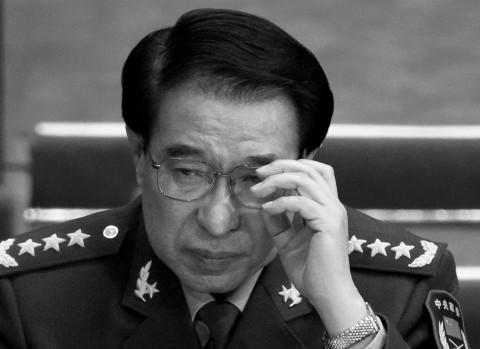The People’s Liberation Army has been stuck in the doldrums for the past ten years—and it’s all because of corruption, says a Chinese general.
In an interview with pro-Beijing Hong Kong broadcaster Phoenix Television, army major general and the National Defense University’s science and research department director Qin Tianshao said that the “political environment within the military has been greatly sabotaged” by corrupt generals like Xu Caihou over the last decade, something that has “hurt the military greatly.”
Xu Caihou, formerly the second most powerful man in the Chinese military from 2004 to 2013, passed away in March from bladder cancer while in detention, according to state media. He was at the time being investigated for massive corruption—embezzling state assets and selling military positions.
Between January 2014 to February 2015, a total of 30 military generals were put under investigation for corruption. And on Feb. 18, Chinese leader Xi Jinping ordered the Central Military Commission General Office—a Party-run military policy making body—to carry out a comprehensive review of its revenue and expenditures from 2013 and 2014. Xi is the Central Military Commission’s chairman.
The anti-corruption campaign in the military is “actually a process of rebirth,” said Qin, referring to a Party rectification drive being carried out by Chinese leader Xi Jinping and Party anti-corruption agency head Wang Qishan. “Only when we face and fix the problems can our military recapture its character and rebuild its spirit,” Qin added.
The military has already cleaned up one outstanding problem—housing. According to Qin, military officials have been hanging on to houses assigned to them long after they have been transferred to another area, but now the issue is “completely resolved.”
Qin’s comments came after the Chinese regime announced its “China’s Military Strategy” white paper on May 26, in which Xi said “the military must resolutely safeguard the Party leadership and China’s unique socialist system with determination to uphold the national sovereignty, security and development interests.”



